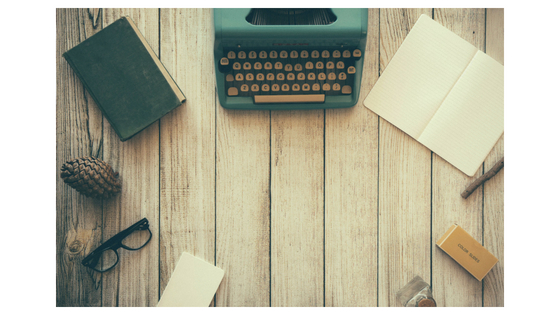In celebration of World Environment Day and the Philippine Environment Month, the Department of Environment and Natural Resources- Environmental Management Bureau (DENR-EMB) and GREENducation conducted a FREE Upcycling seminar-workshop on Tuesday, June 5, 2018. The said event focused on upcycling of plastics as a way to contribute to the reduction of solid wastes. It was attended by participants coming from different highschools and colleges in Metro Manila namely, University of the Philippines, Philippine Science High School, Pasig HighSchool, De La Salle University, University of Santo Tomas, Polytechnic University of the Philippines, University of Rizal System – Tanay and selected students taking up courses in BS Environmental Science and Sustainability Management, GREENducators, and young professionals, environmental advocates and EMB staff.
National Youth Commissioner Paul Anthony M. Pangilinan addressed the participants and reminded the youth and young leaders that “all of us can help in protecting the world we are living in. We must remember that we are all responsible in taking care of the environment.”
Currently, Asec. Paul Pangilinan chairs the NYC Committees on Global Mobility and Environment. As an active youth advocate, he envisions to empower the Filipino youth by developing their capacity, addressing their needs and by inspiring them to make “Larger Dreams and Larger Change” in our country.
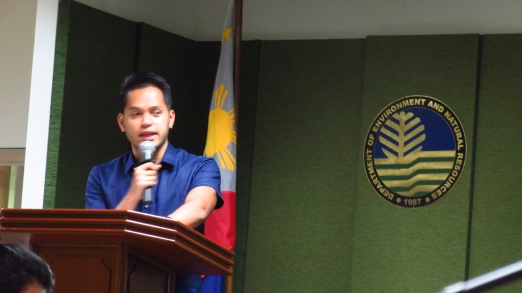
In line with the Celebration of World Environment Day, EMB Assistant Director Engr. Vizminda A. Osorio warmly welcomed the participants to the workshop. Asst Dir. Osorio further encouraged the participants to Upcycle “because you can turn trash into something beautiful and help reduce waste,” she said.
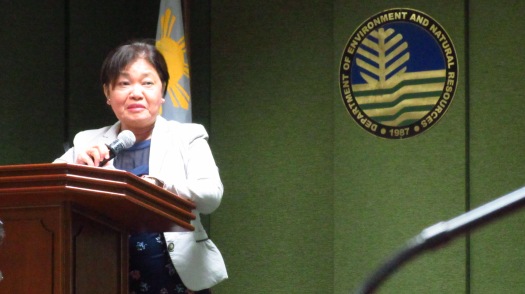
Ms. Nelie A. Dimer, an Environmental Management Specialist of the EMB-SWMB conducted a very lively discussion regarding Solid Waste Management, and further enlightened everyone about RA 9003. As an overview of current status of Solid Waste Management in their respective areas, the participants provided both positive and negative feedback of Solid waste management in their locality during said discussion.
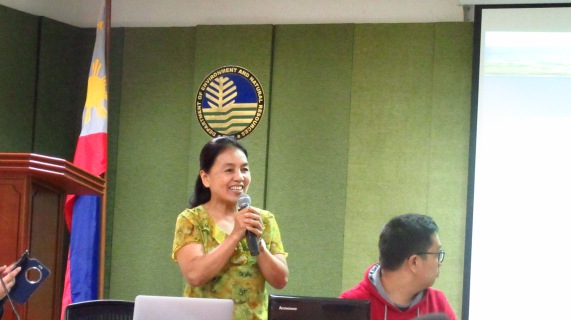
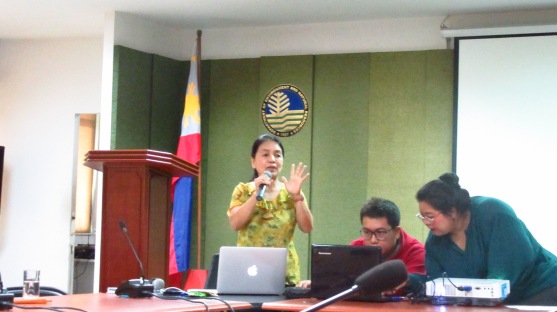
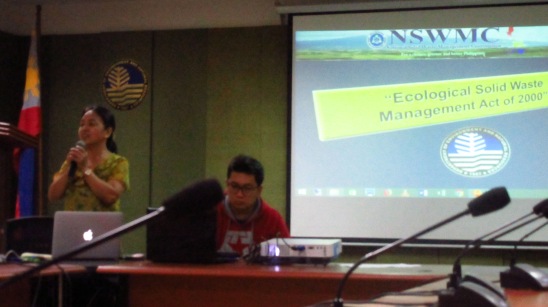
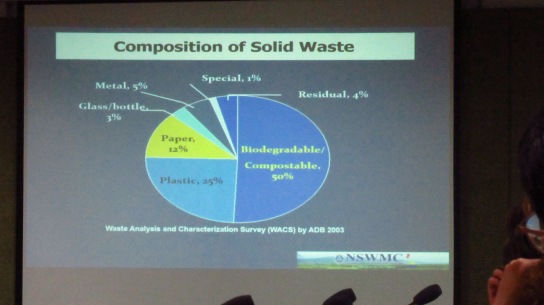
Ms. Nelie A. Dimer is an Environmental Management Specialist of the EMB-SWMD. She is a graduate of Bachelor of Science in Environmental Science and has undergone training on community organizing, SWM for LGUs, and Capability Building on Landfill Gas Monitoring and Management. Ms. Dimer is a passionate lecturer on Ecological Solid Waste Management, Composting, Waste Characterization study, Community Organizing, Climate Change, and Gender and Development. She is also the MRF Operation Manager of the EMB-DENR.
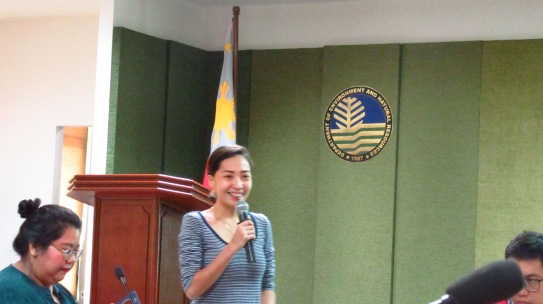
Ms Ma. Adavieve Mella, or Teacher Ada, is an educator-Upcycler- entrepreneur-social media administrator of Upcycle This Philippines and AmoreCrafts. She showcased her upcycled projects and also demonstrated how to upcycle an old tshirt into yarn which can be used for other craft projects.
Ms.Ada also defined Upcycling and explained the waste reduction hierarchy. “Upcycling is never an excuse to acquire too many things. And for hoarders, donating is also not an excuse.” True enough, a person will not have to declutter if one practices minimalism.
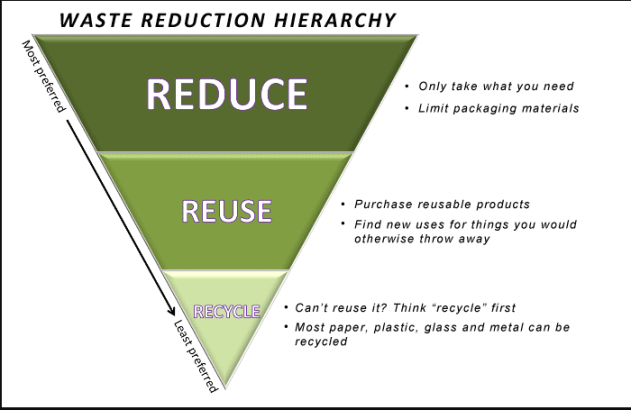
From the TheUpcyclingFashionista blog, Upcycling is defined as the opposite of downcycling. Downcycling involves converting converting valuable products into low-value raw materials. For example creating recycled papers from paper or creating rags from clothing. Although downcycling helps the planet because it keeps things out of landfills (for a time at least) many times it will eventually end up there.
When you upcycle, you reuse and make something of better quality from its original form. Upcycling has a more positive impact on the environment because we creatively think of other ways to reuse, refashion, repurpose an object instead of throwing it to the landfill.
Alyssa Marie Nacpil and John Patrick Purugganan, Project Directors of Ecobricks MNL, showed the group the proper way of making their own ecobricks using scraps and pieces of nonbiodegradable materials.
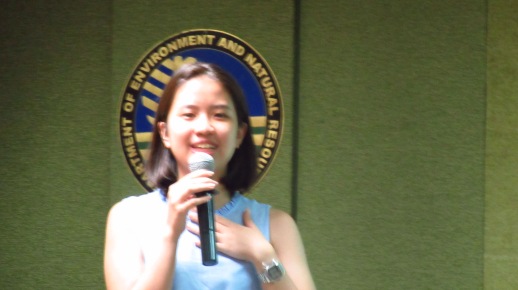
Ecobricks MNL Co-Project Director Alyssa Marie Nacpil is responsible for coordinating with zero-waste groups, and also keeps track of the collection system of ecobricks. Aside from academics, Ms. Nacpil is also active in extra-curricular activities. Currently, she is an active member of DeLaSalle University (DLSU)-UNICEF. In 2017, she was a Member-Advocate of the Philippine Chapter of the 2030 Youth Force, an organization that inspires young people to engage in the promotion of the Sustainable Development Goals, particularly SDG 16- Peace, Justice and Strong Institutions.
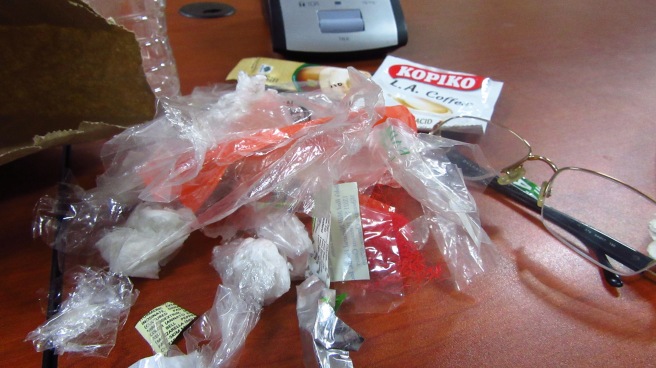
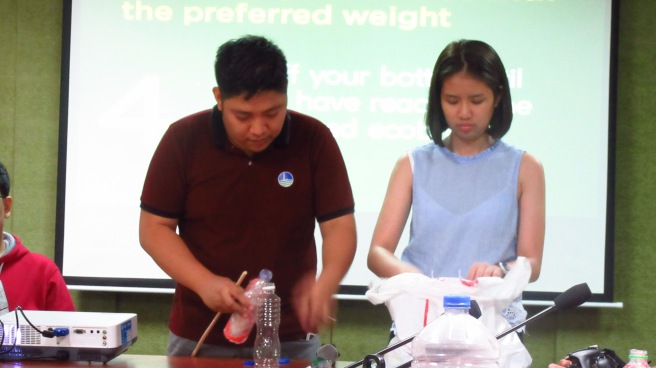
Workshop organizer and Youth Adviser of GREENducation Mr. Vermon Timbas and Ecobrick Co-Project Director Alysa Marie Nacpil showing how to make ecobricks
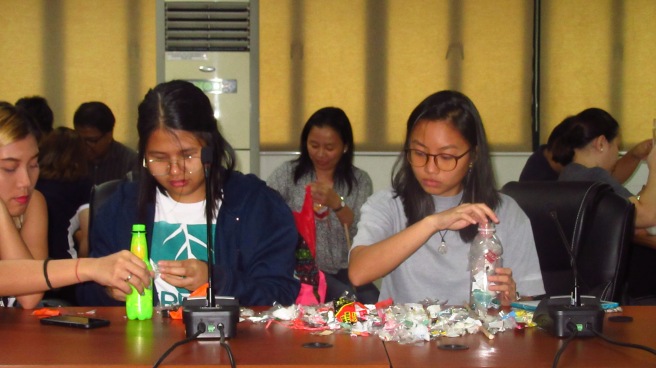
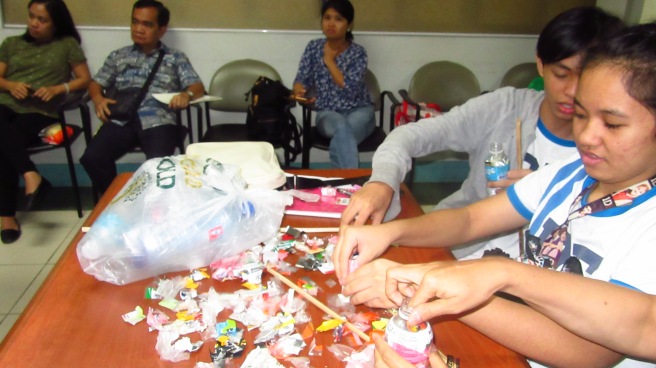
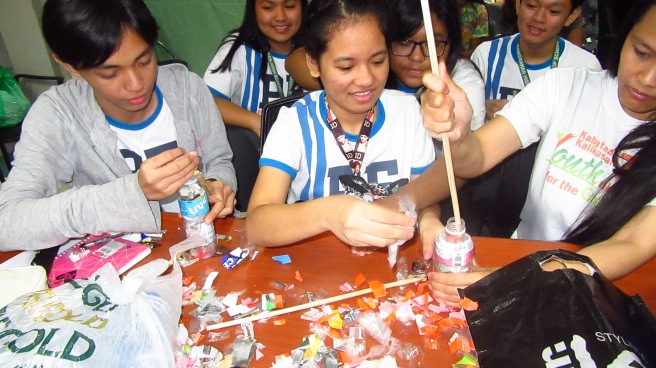
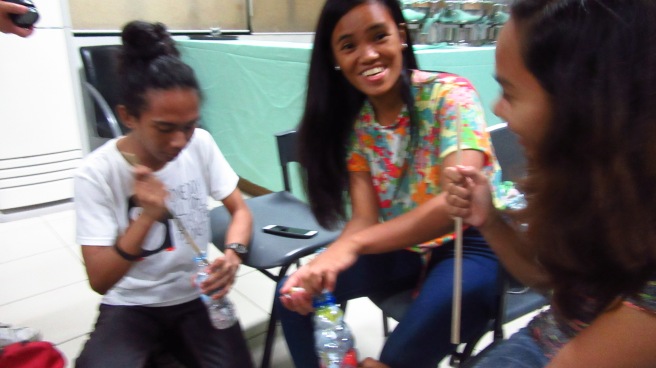
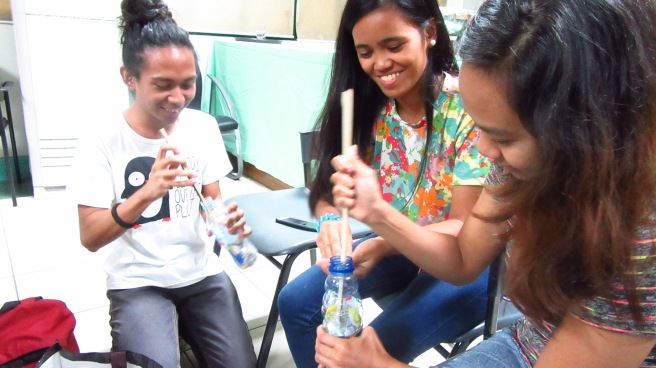
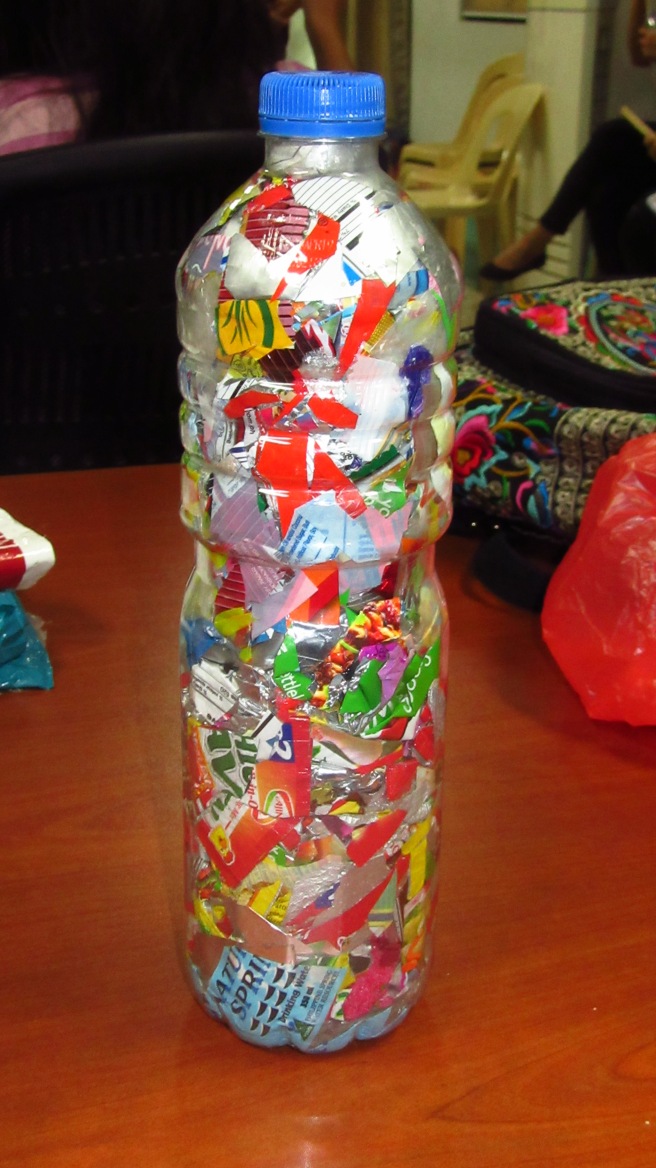
Mr. Ludwig O. Federigan shared his insights on plastic pollution with an inspirational message, citing his timely article from Manila Times Do you want to live in a world of plastic?
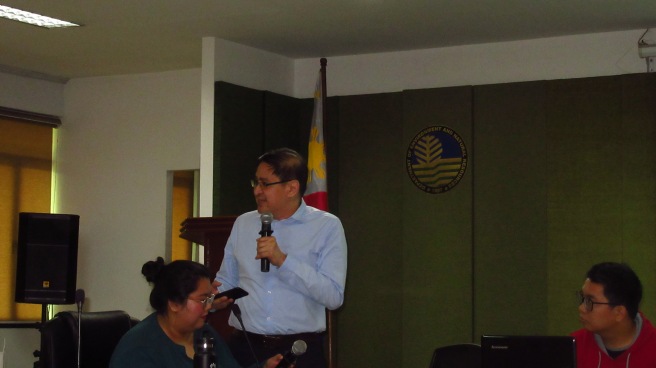
In line with World Environment Day theme #Beat Plastic Pollution and National Geographic June 2018 cover “Planet or Plastic” he delivered his message with utmost urgency for everyone to take action .
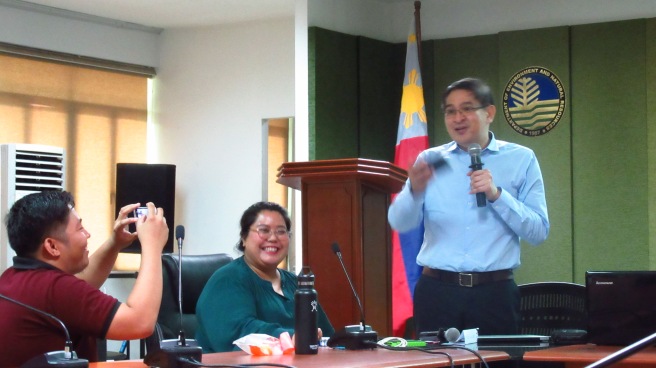
Quite surprising to hear from Mr. Federigan, that Pasig River is the 8th worst contributor of plastic into the ocean, based on a study “River Plastics Emissions to the World’s Oceans” published in Nature Communications in April 2017. He concluded his message with a challenge for the participants to do a small act and pledge to reduce single-use plastic.
Mr. Ludwig O. Federigan is the Executive Director of the Young Environmental Forum and part of the Climate Reality Leadership Corps of The Climate Reality Project; a 2017 Yale Sustainability Leadership Fellow, and a recipient of the Miguel R. Magalang Individual Climate Leadership Memorial Award by The Climate Reality Project Philippines.
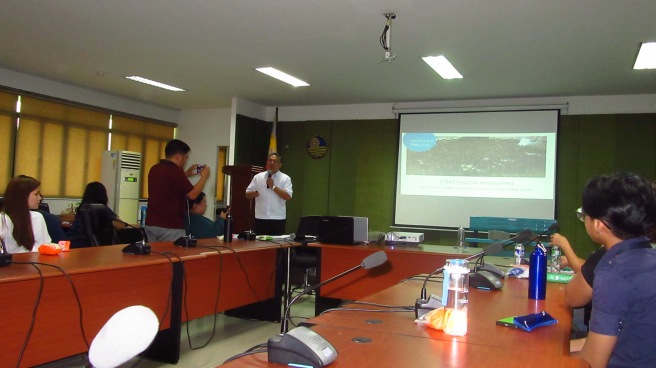
Engr. Jesus Reyes, Nestle Philippines Vice President for Corporate Affairs and CSV Pillar Lead for Environment and Water, discussed the company’s initiative called Creating Shared Value (CSV), a strategy that allows Nestlé to grow its business while contributing to the advancement of the society where it operates. It aims to strive for zero environmental impact in their operations recognizing the importance of reducing waste along the whole value chain and its commitment to eliminating waste at every level of its operations. And in August 2016, Nestlé Philippines achieved zero waste to landfill across all its factories, and continues to promote better solid waste management programs across the life cycle of its products.
Another solid waste management initiative from Nestle, in partnership with local government units and GreenAntz Builders Inc. is the Laminates for Ecobricks Hub Project.
The Eco-bricks are composed of wet cement and shredded plastic laminates (sachets). The sachets are obtained from industrial and commercial wastes and turned into bricks.
They gather and use barter system for used coffee sachet. A single eco-brick requires 100 pieces of sachets. Some of Nestle Eco-brick hubs are located in Cagayan de Oro, Cavite, Plaridel Bulacan and Cebu.
Indeed, Nestle support initiatives that recover and recycle plastics and laminates, particularly to prevent them from contaminating natural habitats .
Nestle is a member of The Philippine Alliance for Recycling and Materials Sustainability (PARMS) a multi-stakeholder partnership supported by the National Solid Waste Management Commission (NSWMC), and a multi-sectoral coalition composed of top corporations in the fast-moving consumer goods (FMCG) sector.
In 2017, The Philippine Alliance for Recycling and Materials Sustainability (PARMS) and its eight members from the fast-moving consumer goods (FMCG) sector sign an agreement to establish a P25 million recycling facility for sachets as part of a comprehensive approach to address post-consumer waste which puts a strain on the environment, particularly waterways. The recycling facility will employ clean technology that can process more than 150 metric tons of waste per year, to be converted into products such as pallets, school chairs and other high-value plastic products.
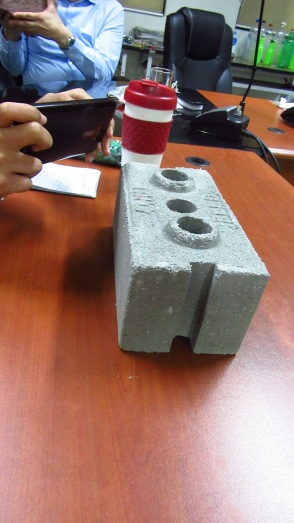
Currently Nestlé’s Laminates to Eco-bricks Hub Project and Tibayanihan’s Sachet to School Chair Upcycling Project is one of the sustainable programs supported by the The Philippine Alliance for Recycling and Materials Sustainability (PARMS) a multi-stakeholder partnership supported by the National Solid Waste Management Commission (NSWMC), and a multi-sectoral coalition composed of top corporations in the fast-moving consumer goods (FMCG) sector.
****
PHOTO GALLERY
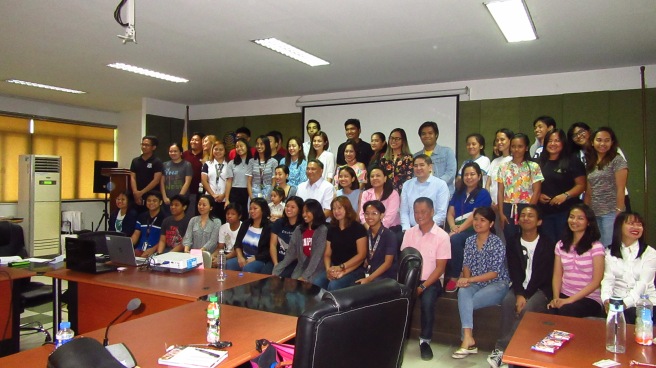
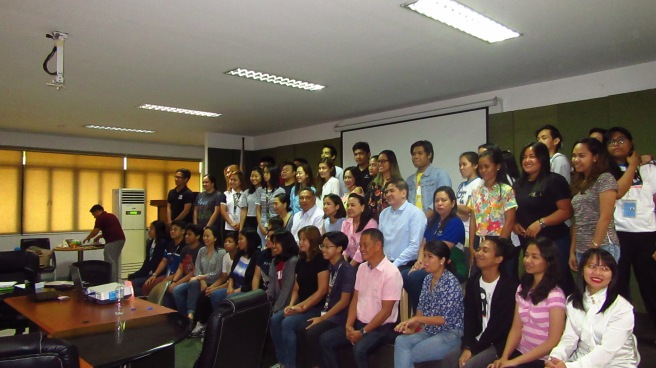
During the workshop breakout session, the participants together with their GREENducator mentors, were divided into two groups. The first group was assigned to come up with their own designs for fashion accessories using old cds. The second group was assigned to make planters, pots or gardening containers using plastic bottles.
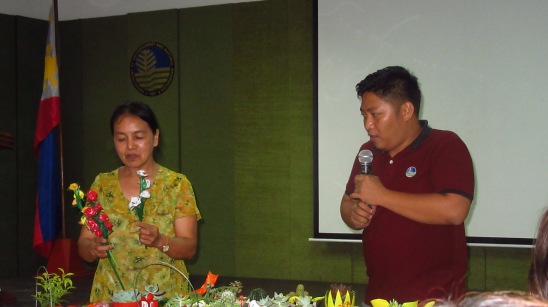
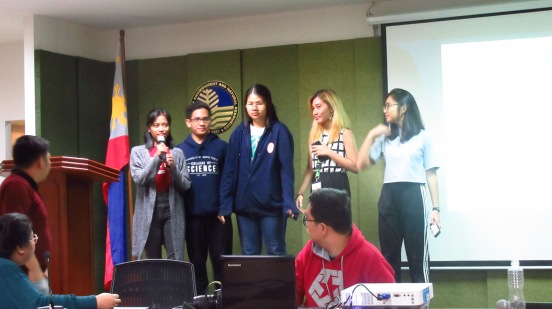
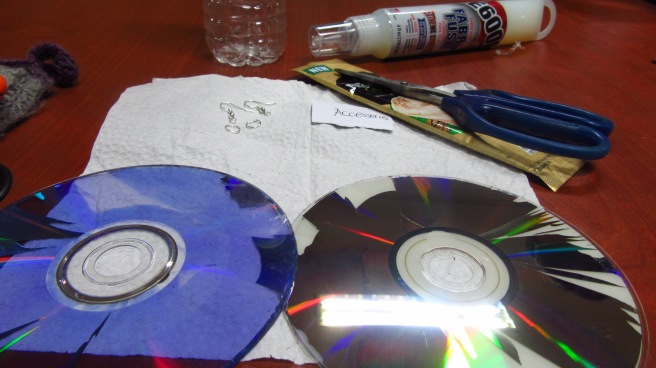
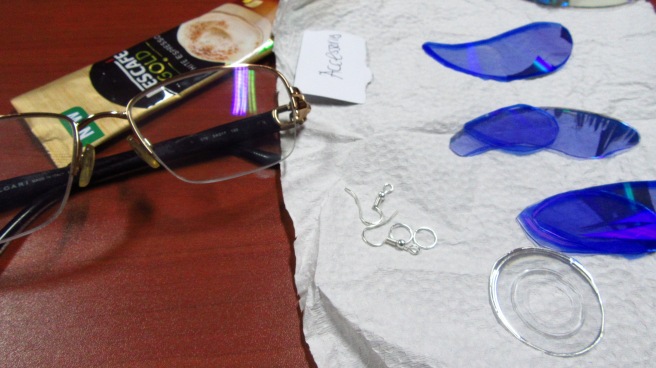
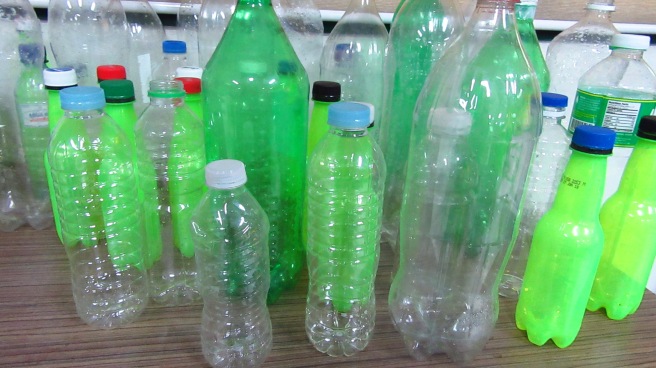
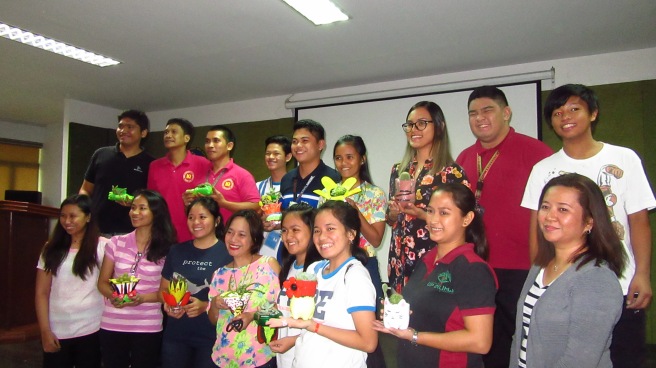
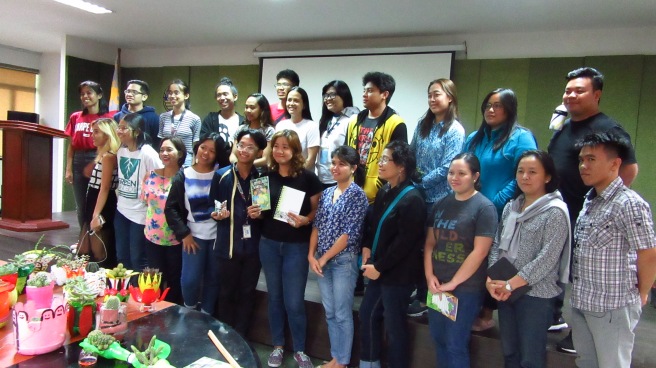
It was fun to see everyone supporting and admiring each other’s creations. Let us encourage the youth to echo to their respective communities, school organizations, family and friends what they have learned from the workshop.
PRESENTATION OF OUTPUTS
Let us all take action and #Beat Plastic Pollution. Not just for one day, but for everyday that we are living. We only have one Earth, and what we can do today will make a big difference. Let us UPCYCLE and creatively reuse our trash. If you can’t reuse it, refuse it.
